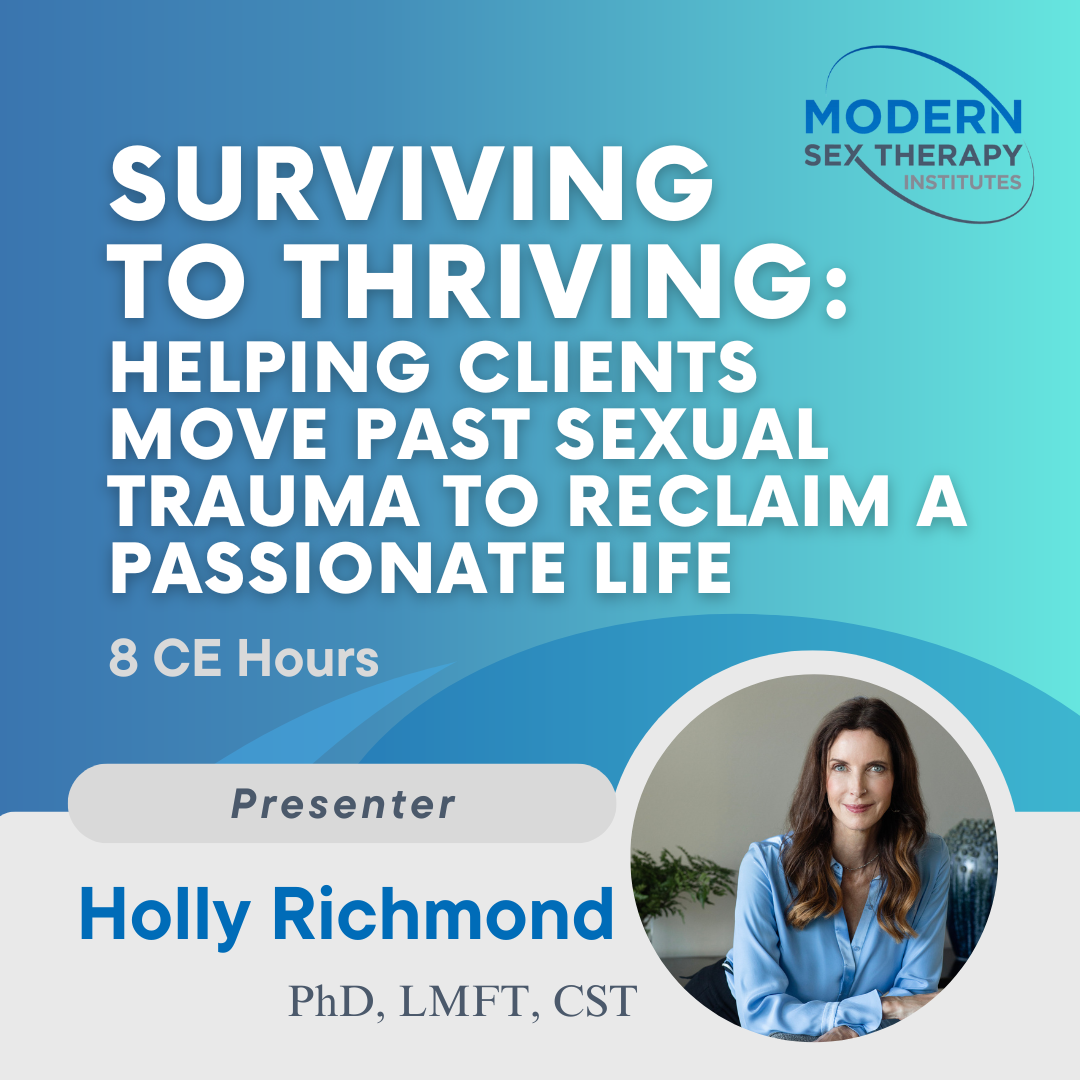Surviving to Thriving: Helping Clients Move Past Sexual Trauma to Reclaim a Passionate Life (8 CE Hours)
$320.00
8 CE Hours
Presented by: Holly Richmond, Ph.D., LMFT
Recorded workshop available via video on demand
AASECT Category:
Human Sexuality Education
Section J
AND
Sex Therapy Education
Section C
Course Description: The word “survivor” has emerged within our cultural lexicon thanks to movements like #MeToo and #TimesUp, establishing a social declaration for sexual healing and empowerment. We can no longer avoid hard truths—sexual abuse, assault, harassment and rape happen to one out of every six women and one out of every thirty-three men in the United States (rainn.org)—and the aftermath of these traumas include the burden of belief in addition to survivors’ often solitary journey toward mind/body health. Repairing what has been lost to sexual violence is necessary, even vital to the process of recovery, but it’s not enough. Surviving is the beginning, though certainly not a sufficient or acceptable end.
This course explores what comes next. Practitioners will learn how to help clients shift from surviving to thriving, from “getting through it” to fully living, experiencing and evolving. It draws from contemporary research in sex therapy and somatic psychology, offering theories and tools to ground survivors in concepts of safety, security and trust, but also reach further into the necessary terrain of vitality, freedom, healthy relationships and great sex. Through specific somatic sex therapy protocols and numerous case studies, practitioners will learn to guide clients on a holistic journey toward the rediscovery of desire, both for themselves and in their intimate relationships.
Learning Objectives:
- Understand different types of sexual trauma including abuse, assault, rape and harassment
- Gain awareness of the psychophysiology of sexual trauma response
- Provide three clinical examples of ways to help clients move beyond healing and reclaim desire
- Explain what is meant by embodiment and empowerment through a trauma-informed somatic sex therapy lens
- Discuss how concepts of eroticism are linked to integrated sexual and relational health
Class originally recorded: 12/17/2021.
Social workers completing this course receive 8 clinical continuing education credits.

